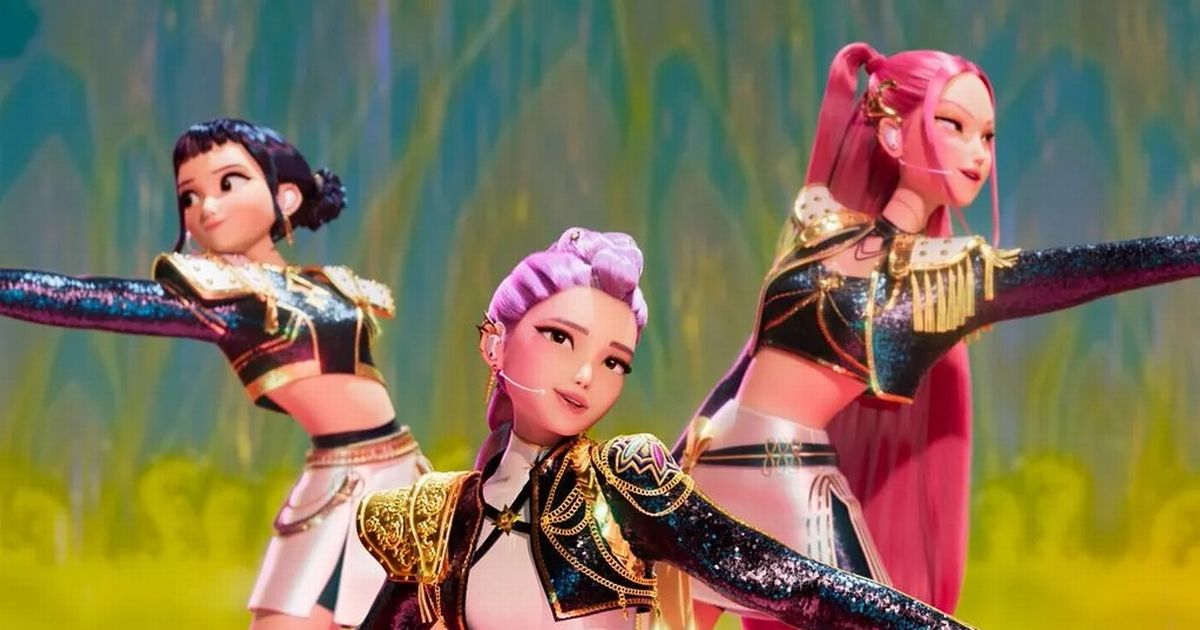The action-packed hit has topped the Netflix film charts and caused a surge of interest in Korean words and slang.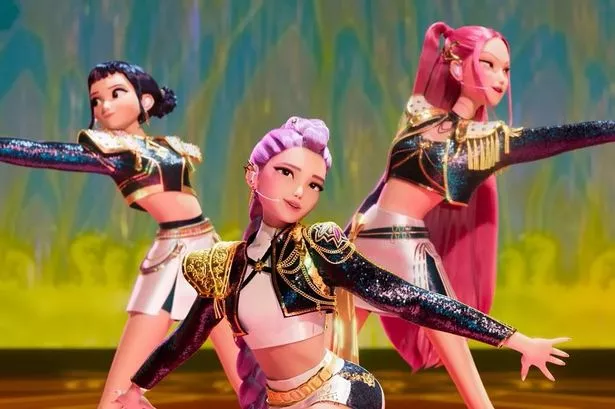 The film follows the adventures of fictional K-pop girl band Huntr/x (Image: Netflix)
The film follows the adventures of fictional K-pop girl band Huntr/x (Image: Netflix)
K-pop Demon Hunters has officially taken the top spot as Netflix’s most-watched film ever. And what has sparked alongside its huge popularity and appeal is a wave of interest in the Korean words and slang used in the film.
The animated musical has been seen a total of 236 million times since its release in June, overtaking action comedy Red Notice to become the streaming site’s most popular English language film in history.
And now, viewers are picking up key phrases, in-jokes and cultural references, with some creeping into everyday conversation.
Wondering what they are? To help people keep up, the language experts at Preply have broken down the most-used terms from the film and what they actually mean. So, settle down for a language lesson.
Couch! Couch! Couch!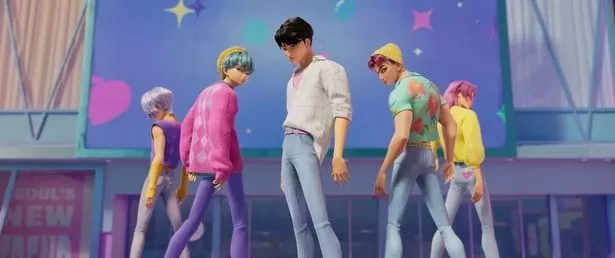 The quality of the music is so good that Netflix released a sing-along version in cinemas (Image: Netflix)
The quality of the music is so good that Netflix released a sing-along version in cinemas (Image: Netflix)
This is possible the most iconic line in the whole film. After a world tour and a demon battle (as you do), two of the main characters throw themselves onto a sofa and start chanting “Couch! Couch! Couch!” in delight.
“Now, when fans are exhausted after a long day at work or school, they often find themselves mimicking the same chant,” a Preply expert said.
“This is a great example of how repeating a word can completely shift its meaning. Take “Lads! Lads! Lads!” for example. On its own, lads simply refers to a group of boys. But when chanted, it takes on a new energy.
“Couch is a pretty standard noun, but in this context, it’s tied to the specific, satisfying feeling of kicking back and finally relaxing. It’s all over TikTok and Twitter, used anytime someone’s ready to flop onto the sofa and call it a day.”
HUNTR/X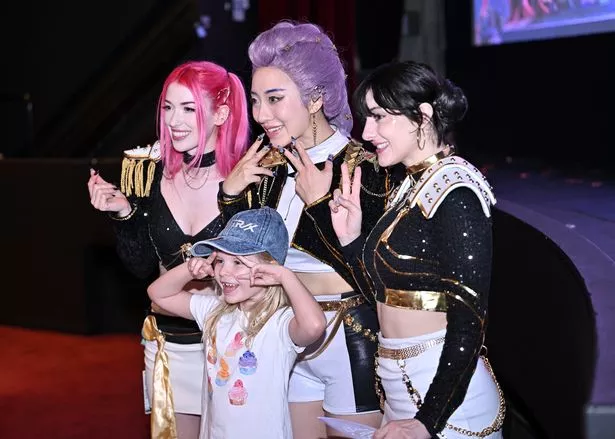 Guests attend the KPop Demon Hunters A Sing-Along Event fan surprise on August 23, 2025 in New York City(Image: Getty)
Guests attend the KPop Demon Hunters A Sing-Along Event fan surprise on August 23, 2025 in New York City(Image: Getty)
Pronounced ‘Huntrix,’ this is the name of the idol group at the centre of the film.
“Part of the reason the film is resonating so strongly with K‑pop fans is because this is exactly the kind of name a real K‑pop group might have,” the Preply professional went on.
“The creators clearly understand the K‑pop world and its fanbase, and they’ve made deliberate language choices that reflect that.
 Join the Daily Record WhatsApp community!
Join the Daily Record WhatsApp community!
Get the latest news sent straight to your messages by joining our WhatsApp community today.
You’ll receive daily updates on breaking news as well as the top headlines across Scotland.
No one will be able to see who is signed up and no one can send messages except the Daily Record team.
All you have to do is click here if you’re on mobile, select ‘Join Community’ and you’re in!
If you’re on a desktop, simply scan the QR code above with your phone and click ‘Join Community’.
We also treat our community members to special offers, promotions, and adverts from us and our partners. If you don’t like our community, you can check out any time you like.
To leave our community click on the name at the top of your screen and choose ‘exit group’.
If you’re curious, you can read our Privacy Notice.
“The slash and bold styling in the group’s name taps into a growing trend of treating music aliases, online handles, and even gamer tags as visual identities, almost like logos.
“In music, think CHVRCHES or A$AP ROCKY. These names use stylised letters, symbols or spacing to create a distinct visual brand that sticks in your mind and gives you a real feel of who they are before you’ve even listened to them.”
Honmoon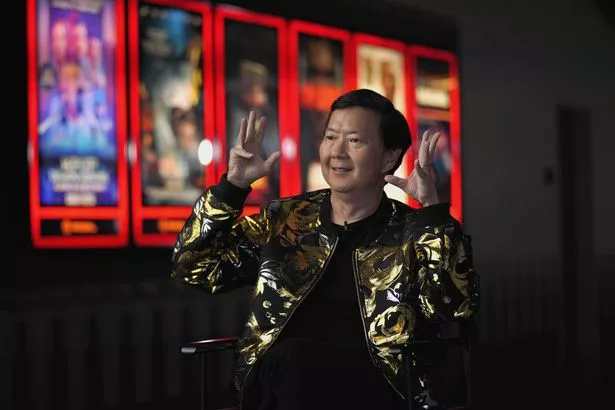 Ken Jeong speaks during Netflix’s “KPop Demon Hunters” A Sing-Along Event (Image: Getty)
Ken Jeong speaks during Netflix’s “KPop Demon Hunters” A Sing-Along Event (Image: Getty)
“Honmoon” is a word rooted in Korean, made up of “hon” (혼), meaning soul, and “moon” (문), meaning gate.
In the film, it refers to the boundary between the human world and the demon world.
“What makes it interesting is how the film blends real Korean vocabulary into an anime-style narrative,” the Preply expert notes. “The idea of a soul gate appears in Korean spiritual traditions, offering a nice cultural touchpoint.
“Outside the film, you could imagine “Honmoon” being used metaphorically. For example, as a way to describe someone’s personal boundary or emotional block.”
Gwi-Ma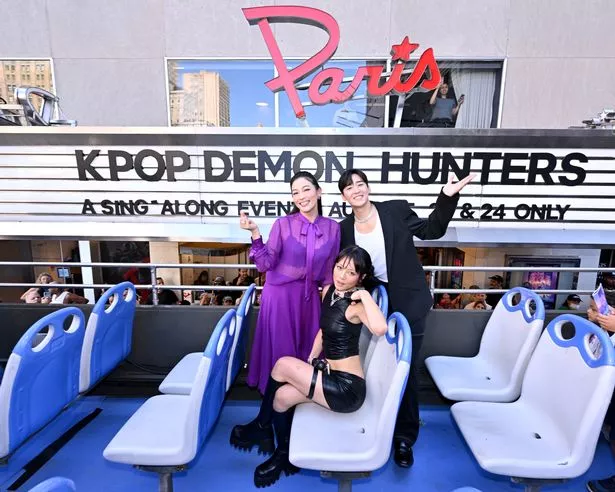 Arden Cho, REI AMI and Kevin Woo hop on the KPop Demon Hunters-Sing Along Experience bus(Image: Getty)
Arden Cho, REI AMI and Kevin Woo hop on the KPop Demon Hunters-Sing Along Experience bus(Image: Getty)
The film’s main villain, Gwi-Ma, has meaning behind it. “Gwi” (귀) means ghost, and “Ma” (마) means demon, which pretty much encompasses what this character is all about.
“Names like this are common in Korean folklore, where ghosts and evil spirits often represent inner struggles or unresolved trauma,” the Preply person said.
Jeoseung Saja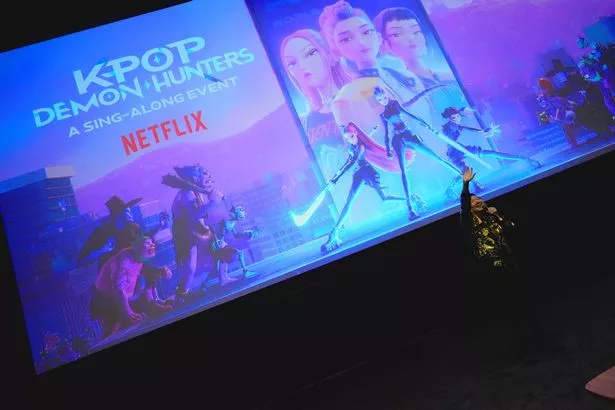 Golden and Your Idol, by Huntr/x’s arch enemies Saja Boys, have topped the US Spotify charts(Image: Getty)
Golden and Your Idol, by Huntr/x’s arch enemies Saja Boys, have topped the US Spotify charts(Image: Getty)
The term Jeoseung Saja refers to Korea’s version of the Grim Reaper – a spiritual guide who ferries souls from the living world to the afterlife.
“In Korean culture, this figure isn’t evil; he doesn’t steal lives or punish people,” the expert explained. “He’s just doing his job and guiding you on your final journey. “In K-pop Demon Hunters, the Saja Boys take this calm eerie concept and flip it on its head, keeping the traditional styling of the spiritual figure, but instead dripping it with swagger.
“The term has also made its way into pop culture, with fans now using the term to describe someone who looks dangerously good, as in “you walked in like jeoseung. Jeoseung Saja. A tradition rebranded thanks to the film.”
Eung-won-beop
The phrase is the Korean word for ‘chant’ that fans will usually cheer during a song. In Korean culture, these chants are sacred, and fans become part of performances with their idols.
“But in Netflix’s smash hit film, they’re even more powerful when fans chant it.” the spokesperson adds. “It literally fuels the group’s strength. The term is now being used in everyday life to hype up friends or loved ones.”

